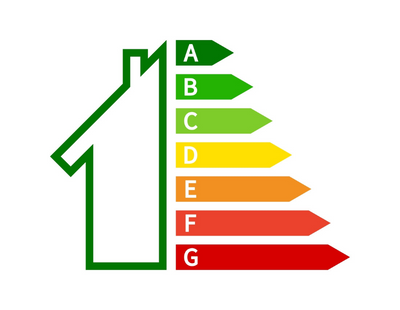Image Source: FreeImages
## Introduction
In recent years, there has been growing recognition of the need to improve energy efficiency in rental properties. The Social Market Foundation (SMF) conducted a survey that revealed an overwhelming support for raising the minimum energy efficiency standard (MEES) among landlords. In this article, we will explore the significance of stricter energy efficiency regulations for rental properties and the implications for both landlords and tenants. Let’s explore The Importance of Stricter Energy Efficiency Rules for Rental Properties.
The Current State of Energy Efficiency in Rental Properties
According to the SMF report, 79% of landlords believe that they should be subject to stricter energy efficiency regulations. This finding indicates a significant shift in attitudes among property owners, with private sector landlords particularly supportive of raising the MEES requirements. Currently, the MEES is set at an Energy Performance Certificate (EPC) rating of band E, which means that landlords can only lease properties with an E energy efficiency rating or higher.
However, the government’s decision to scrap plans requiring all landlords to upgrade their properties to at least an EPC C rating by 2028 has caused uncertainty among landlords. While some welcomed the move, arguing that the new standards were announced too late and lacked a support package, others are frustrated by the changing goalposts and the financial implications of their previous property upgrades.
The Cost of Poor Energy Efficiency
The SMF previously highlighted the financial consequences of poor energy efficiency in rental properties. Private renters in England and Wales are on track to waste £1.1 billion, or £220 per household per year, due to the inadequate energy efficiency of their homes. This financial burden falls on tenants, who have to bear the higher costs of heating and electricity.
Additionally, the poor energy efficiency of rental properties contributes to the overall carbon emissions of the country. The UK’s residential properties account for 16% of the country’s total carbon emissions, making it one of the highest-emitting sectors of the economy. Improving energy efficiency in rental properties is not only essential for reducing tenants’ costs but also for achieving the country’s climate goals.
Benefits of Stricter Energy Efficiency Regulations

Stricter energy efficiency regulations for rental properties offer several benefits for both landlords and tenants. Firstly, improving the energy efficiency of rental properties can lead to significant cost savings for tenants. By reducing energy consumption, tenants can enjoy lower utility bills, making their living expenses more affordable.
Furthermore, energy-efficient properties are more attractive to potential tenants. In a competitive rental market, landlords who invest in energy efficiency upgrades can differentiate their properties and potentially charge higher rents. Tenants are increasingly aware of the benefits of energy-efficient homes and are willing to pay a premium for properties that offer reduced energy costs and improved comfort.
The Role of Local Authorities and Installers
The SMF report suggests that local authorities have a crucial role to play in increasing trust and awareness among landlords and owner-occupiers regarding energy efficiency improvements. They can create “one-stop shops” to provide advice and information on insulation and energy efficiency. By offering comprehensive guidance, local authorities can help landlords navigate the process of upgrading their properties and ensure they meet the necessary standards.
Additionally, the SMF recommends that installers should be accredited by the government or a trade body to assure consumers of the quality of work, reliability, and trustworthiness. Accreditation can help build confidence among property owners and encourage them to invest in energy efficiency upgrades.
Overcoming Barriers to Energy Efficiency Upgrades
While homeowners are increasingly recognizing the benefits of energy efficiency improvements, there are still barriers to widespread adoption. One significant barrier is the upfront costs associated with these upgrades. Many homeowners and landlords are deterred by the initial investment required to make their properties more energy-efficient.
To overcome this obstacle, the SMF proposes the use of “nudges” such as checkpoint reminders and new financial products. These nudges can help homeowners understand the long-term cost savings of energy efficiency upgrades and provide them with financial solutions to manage the upfront expenses. By addressing the financial concerns of property owners, more landlords may be motivated to invest in energy efficiency measures.
The Government’s Commitment to Energy Efficiency
The government has made efforts to improve energy efficiency in the UK. Almost half of all homes in England now have an EPC rating of C or above, up from 14% in 2010. The government has allocated over £12 billion to energy efficiency and low carbon heating during this Parliament, aiming to create homes fit for the future while easing the financial burden on property owners.
Under the Great British Insulation Scheme, more than 300,000 of the UK’s least energy-efficient homes are expected to be improved by 2026. This initiative will contribute to reducing carbon emissions and help families save money on their energy bills.
The Impact on Landlords’ Investment Decisions
Lloyds Banking Group’s Housing Stocktake 2023 report revealed that the government’s decision to scrap requirements for rental properties to reach an EPC C rating by 2028 has had a significant impact on landlords’ investment decisions. 42% of landlords aware of the change had canceled plans to invest in energy efficiency measures, and 53% stated that the decision made them less likely to invest in green measures in the future.
This finding highlights the importance of consistent and predictable regulations for landlords. Uncertainty surrounding energy efficiency requirements can discourage investment and hinder progress towards a greener rental sector.
Innovative Solutions for Energy Transition

In line with the growing demand for energy-efficient solutions, Swedish clean energy firm Aira has recently launched in the UK. Aira aims to invest £300 million over the next three years to help one million UK customers switch from gas boilers to clean energy-tech solutions, such as heat pumps. By offering a monthly payment model with zero upfront costs, Aira aims to make heat pumps more affordable and accessible for households across the country.
This innovative approach not only promotes energy efficiency but also supports the transition to cleaner heating technologies, reducing carbon emissions and dependence on fossil fuels.
Conclusion
The support among landlords for stricter energy efficiency regulations in rental properties is a positive development that aligns with the urgent need to address climate change and reduce carbon emissions. Stricter regulations can benefit both landlords and tenants by lowering energy costs, improving comfort, and reducing environmental impact.
To facilitate widespread adoption of energy efficiency measures, it is essential to provide support and guidance to landlords, address financial barriers, and ensure consistent and predictable regulations. By working together, landlords, tenants, local authorities, and the government can create a rental sector that is more sustainable, affordable, and environmentally friendly.
Remember, if you want to stay up-to-date with the latest developments in sustainability, check out BusinessGreen Intelligence, the premier information source for professionals focused on the UK’s green economy.

